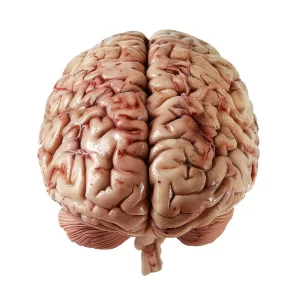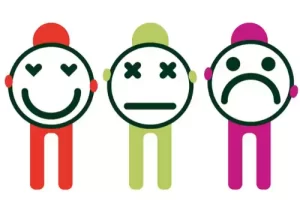The modern way of life strongly influences the relationships of family members. The reach of the changes cannot be described. Life as we know it would be impossible without cars, technology, and the Internet. These changes have caused the nuclear family’s disappearance and the coexistence of multiple generations under the same roof and thus created the modern family – two parents and kids without a good connection with the grandparents. The modern family is an increasingly isolated unit, away from grandparents’ direct influence, which could allow children to learn about traditional, natural lifestyles, thus adapting their body structures and allowing them to prolong childhood and a smoother transition from childhood to adulthood. Grandparents also have many experiences and wisdom that derives from learning from past mistakes, which younger people can’t have. Thus, the child’s views were expanded with experience and a more realistic outlook on time and the meaning of relationships with other family members and the surroundings for a normal life. Grandparents brought calmness, warmth, and safety to a home. Thus, they separated the home from the environment and enabled the necessary difference between the home and the environment, enabling better human functioning in everyday life.
The superficial attractiveness of the modern family is in its mobility and independence from the past and the opportunity given by self-expression freed from tradition’s binds. Every parent in a modern family believes and wants to act differently and better than their parents. He is unaware that relationships within the family and to the environment have been created in the past through millennia of testing and coordination, allowing for the greatest chance of survival in the entropy of the environment and nature. We don’t think about how these fast and usually reckless decisions affect the child, structurally and functionally, the same at birth as babies were half a millennium ago. We can also ask ourselves how many pregnant women today can give birth to a healthy child without the help of modern technology in maternity hospitals. How many young mothers have a good enough connection between their consciousness and body to give birth and survive childbirth with minimal help from their grandmother? With all of this, I wonder if a mother who has given birth in such an unnatural way feels and understands the baby well enough and is appropriately connected to it. However, a child needs all this for healthy development, just as kids did in the past.
THE CONSUMER SOCIETY and HOME
Consumer society gives us the illusion of free expression; we wear clothes that suit our tastes and needs, and we outfit our homes the same. The surface of the modern apartment or house changes accordingly. For a woman, a new home is a creative challenge that the environment expects from her. For a man, this is a reflection of his status and position. If both devote too much time to this, there is too little time and energy left for the human aspects. With everything to do and buy in a modern home, it begins to lose its purpose, being a shelter from the world and an oasis of peace and trust. Such a home cannot offer a child good enough security when he was very small and took refuge in a safe mother’s arms. And this has increasing implications for shaping a child’s personality and character.
The ability to withdraw from the modern world into the membrane of our home is threatened by the world of media, as the Internet divides the family members. Instead of a quiet, calm life that suits our parasympathetic system, our home fell victim to progress and fills the pockets of the world’s biggest corporations.
SELF-EXPRESSION and GROWTH
We express ourselves through our actions and by being reasonable, warm, compassionate, alive, joyful, happy, sad, or angry. We are committed to motherhood, religion, our work, which we understand as self-expression – on which the company that we work for depends on. Self-expression is a relationship between a woman and a man that brings deeper pleasures and meaning to life (child). So, to the basic vitality of man, to be (being), he adds work (doing). If we are too stingy, we exaggerate with work to balance the duality. That’s why the ego is trying to dig for deeper pleasures of life due to our work and not in our state of living.
If work represents a greater pleasure than reaping the results, we find ourselves in a contradictory state. We cannot have some fun or relax and enjoy what we created after completing a project because the ego has set its sight onto other projects and forces it into constant productivity. This points to a fear of living, the current state of the body, and the inability to face shallow relationships. We are convincing ourselves that we need more work and more activities. This coincides with the growing demand of today that we must do more.
It is a demand that completely ignores the simple truth that, by being the best he can be, he can realize the meaning of his existence.
CONSTANT GROWTH
This logic is dangerous and harmful. It isn’t natural because it’s based on conditions that the child learns through education and observing his parents. These commend:
– A person must do the best he can
– A person has to achieve his full potential
– With enough will and knowledge, everything is possible
The demanding surroundings and ego won’t allow him to be at peace because they force the person into a constant competition and overcoming themselves – body and mind. This is a detrimental approach mainly because it is passed on from young parents to young children, even before they have even had a chance to enjoy carefreeness, to realize that they are free and innocent beings who can play at will in the protection of parents and at home. The parent’s bodies are as tense as if they were living in a constant state of war.
It is not the desires of young people that prepare the ground for their subsequent separation of the ego from the body, but the expectations and demands of parents towards their children.
Children are expected to grow up quickly, become independent early, learn quickly, be reasonable and cooperative as adults, even though they are still just children. We expect them to fall asleep without our warm and compassionate hug; we don’t even think about whether they are afraid of the dark or not. They aren’t calm in the evening because of work pressures, and our existence accompanies us. We expect our children to recognize his parental rights while he is only familiar with his own needs. We are aware that the child is adapting to his parents’ conditions, which are completely different from the child’s natural conditions and state. Understandably, a child growing up in a beautiful modern but cold house finds it harder to feel relaxed and safe than a child growing up in the warmth of a traditional environment where family members are always nearby and with fewer worries.
HYPERSTIMULATION and ENDURING STRESS
Wisdom dictates that a tree cannot be stronger than its roots. A good gardener will stunt and control the growth of a seedling to develop stronger roots. He indeed misses out on its first fruit and full fertility, but it is greatly repaid through a more resilient tree of which the fertility is longer. Today, we treat children the opposite. We overburden them to grow as fast as possible while denying them the acceptance and support of their childhood, which is necessary to develop their roots and faith in themselves. We are pushing our children the same way as we push ourselves and aren’t aware that we are undermining their feeling of certainty and decreasing their feeling of acceptance and safety. Because he is growing up too fast, he suppresses feelings and emotions from the body and becomes unrealistic towards himself and time.
The child doesn’t receive the right amount of attention; then, everyone is overwhelmed. A person is overwhelmed if the number and types of all the impressions he receives from the world exceed his ability to process and gradually respond to them. The effect of overload is to stay in a state of agitation or overexertion that we cannot shake off and relax. We feel tense and overwhelmed; we become irritable and anxious. All of the above leads to searching for new stimulation.
Permanent stress keeps a person away from his body when he disturbs his inner rhythms and harmonies. It changes the state of the autonomic nervous system and prevents the parasympathetic system’s activation without a high. Such a person doesn’t accurately sense their body since he is achieving false happiness by getting high. This is not due to bodily pleasure, which requires muscle lengthening and expansion into space, but occurs in the nervous system by secreting pleasure hormones. The severity of this disorder can be observed if the person cannot sit still or cannot be left alone. Suppose restlessness drives her into constant activity, into constant action, into constantly new projects, despite obvious fatigue, tiredness, burnout, or addiction to stimulants (coffee, cigarettes). They forced him into a position where he doesn’t have any time left just for himself or his closest, which is why he cannot maintain the depth of the relationships. The husband doesn’t have time for his wife; mothers don’t have time for their kids, and friends don’t have time to hang out.
Kids are easier to overwhelm than adults since their sensitivity is higher, while their tolerance and the ability to limit external stimulation are lower. So, a child who has too many toys constantly wants new ones. If he is allowed to watch television, he will want to watch it all the time. If he is allowed to stay up late, you will find it difficult to escort him to bed on time. But the child is overwhelmed by the hyperactivity and restlessness of his parents, which bring it all home from the outside. The mother’s overloaded condition is passed on to the baby. Unfortunately, parents think that the more things a child does, the faster they will learn something, and therefore the faster they will grow up. The intensity of this causes the dominance of the ego and is worrying. To be calm, quiet, feel with others, and think wisely is almost an unknown way of life today.
LEFT, RIGHT OR EMERGENCY LANE?
When deciding to learn the AEQ Method, we need to be aware that it is long-term experiential learning designed to improve communication between our physical reality and the conscious. Today, fewer people know and use long-term experience-based learning, mainly because they do not have the time. Anyone who wants to overcome physical or character limitations by learning the AEQ method has lived for a long time or is living in a lack of time. Such a way of living wasn’t a rule in the past, but today, haste and egocentrism in a natural environment are quickly punished. But this does not mean that we have also structurally and functionally adapted to the changing way of life on a physical level. The body warns us of this diversity and the body’s inconsistency for a long-lasting (if not permanent) haste with unpleasant feelings, pains, and diseases. Soon or later, it forces us to withdraw from the fast lane to the parking lane on the highway of life. We hope someone will help us back. However, the environment’s help is limited. It cannot penetrate our depth, where the described systemic errors in communication and the relationship between the physical and the conscious are located. The only one able to change these depths is our mind since it has a deep enough feeling and influence on our body’s workings. But only if one is aware and understands these connections, and at the same time, uses the appropriate tools to eliminate chronicle body rigidity, which distorts our awareness so that we can stay on the fast lane for longer, despite not belonging there. That’s why getting back onto the fast lane is more difficult and short-lived, no matter what the ego wants and demands.
The AEQ method and AEQ exercises provide a gradual understanding of these relationships and a more realistic sense of the speed at which we move through life. We understand why it is not good to force the body excessively if it is not necessary for survival through exercise. We are aware of how important it is to realistically feel the body and our surroundings for our consciousness to operate well enough. We are aware of how important it is to realistically feel the body and our surroundings so that our consciousness works well enough. And for that, we need time and to get off the fast lane of life onto the slower lane since experiential learning is impossible in a state of “I don’t have the time” because it demands the appropriate amount of time, attention, and regularity.
As beings with free will, we almost always have the choice to slow down, fix ourselves up, and raise our “soma” through better cooperation, understanding, and respect between the body and consciousness. And with that, guarantee a longer drive on the highway of life. If necessary and with a feeling (which can only originate from the body) to change lanes, prevent involuntary landing on the parking lane, which means injuries, illnesses, depression. But we can also continue going pedal to the floor and trying to keep up with speed configured to computers – machines without feelings, pain, and emotions, and not to the human body that feels joyful and suffers.






